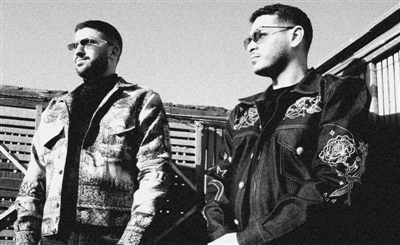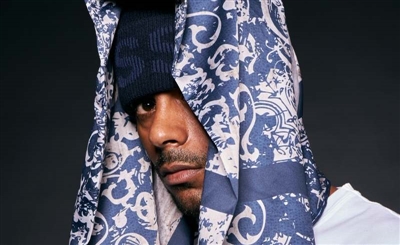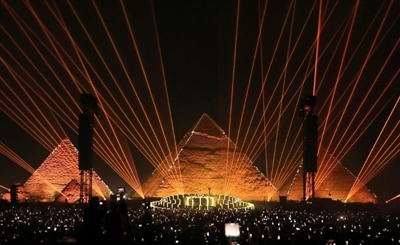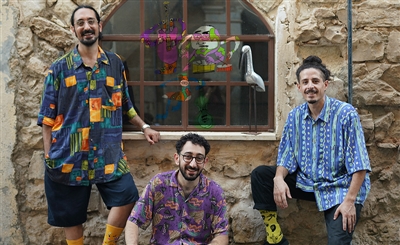Shamaly Chronicles Escaping War-Torn Gaza in Debut EP ‘Bdl Faqed’
The 4-track EP is a raw reflection of survival, love, and resilience amidst Gaza's ongoing genocide.
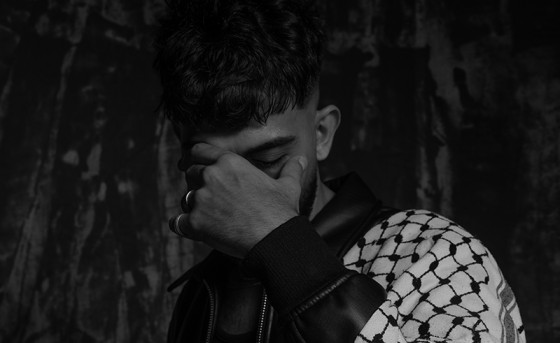
Shamaly, a 23-year-old Palestinian rapper and songwriter, embodies resilience with his debut EP, ‘Bdl Faqed’. The album was born from the ashes of a war-torn Gaza, where daily life is punctuated by the sounds of gunfire and the hum of missiles as Israel continues its genocidal onslaught on the Palestinian people. Shamaly began recording in a solar-powered studio in Rafah, but after the studio was bombed, his project took on a new sense of urgency.
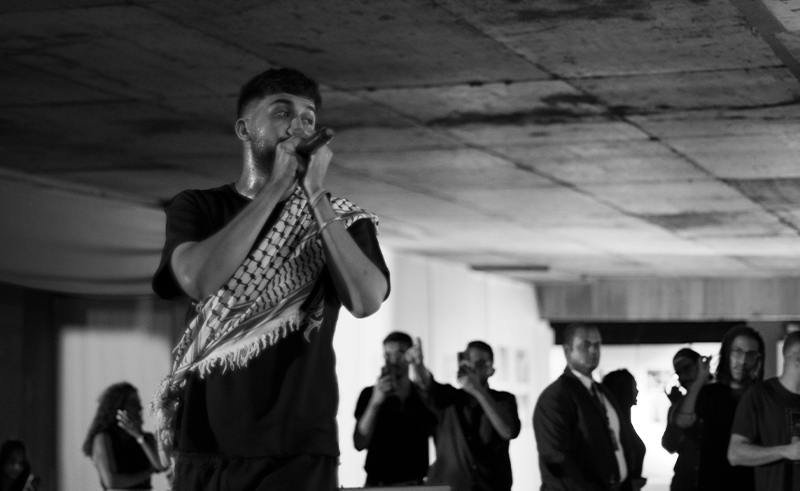 Shamaly and his collaborator, producer Adam Ghanim, found fleeting moments of creativity amid the chaos. Their shared ambition transformed a simple idea, a project conceived before the war, into a profound statement that reflects the harrowing experiences and the emotional landscape of Gaza's youth. As they navigated their realities between UN refugee camps in Gaza and the temporary safety of Egypt, Shamaly's music became a vessel for their collective pain and aspirations.
Shamaly and his collaborator, producer Adam Ghanim, found fleeting moments of creativity amid the chaos. Their shared ambition transformed a simple idea, a project conceived before the war, into a profound statement that reflects the harrowing experiences and the emotional landscape of Gaza's youth. As they navigated their realities between UN refugee camps in Gaza and the temporary safety of Egypt, Shamaly's music became a vessel for their collective pain and aspirations.
‘Bdl Faqed’, which translates to ‘Replacement of the Lost’, encapsulates this struggle in its very essence. The EP is a testament to the enduring spirit of those who have faced the horrors of war, weaving together themes of endurance, love and the quest for identity. Through Shamaly's emotive lyrics and the intricate production that frames them, ‘Bdl Faqed’ is a profound narrative that sheds light on the resilience of the human spirit.
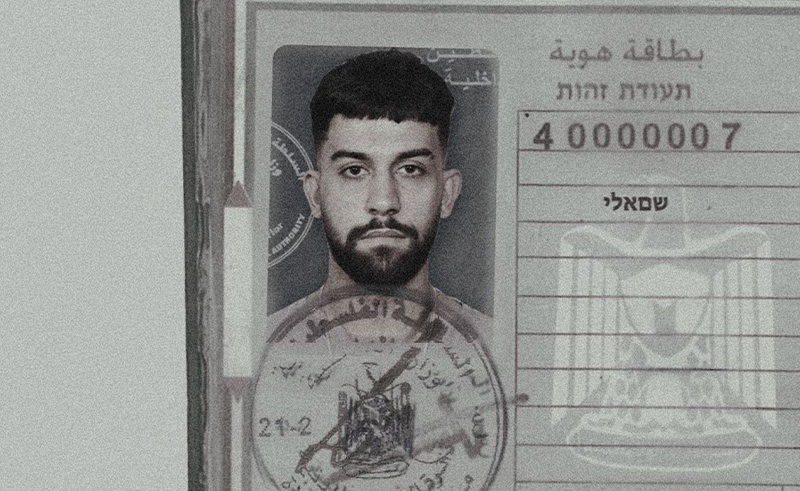 What ties the EP together is its sheer emotional breadth, creating a cohesive narrative that resonates deeply. From the aggressive questioning of ‘Taq’ to the tender vulnerability of ‘Bastana Feek’, Shamaly navigates complex emotional terrain with a rawness that feels immediate yet poetic. Adam Ghanim’s production enhances this cohesion, layering jagged synths and discordant snares to establish an atmosphere that reflects both the chaos and beauty of resilience. The music is not meant to comfort; it’s a stark mirror held up to Gaza’s reality.
What ties the EP together is its sheer emotional breadth, creating a cohesive narrative that resonates deeply. From the aggressive questioning of ‘Taq’ to the tender vulnerability of ‘Bastana Feek’, Shamaly navigates complex emotional terrain with a rawness that feels immediate yet poetic. Adam Ghanim’s production enhances this cohesion, layering jagged synths and discordant snares to establish an atmosphere that reflects both the chaos and beauty of resilience. The music is not meant to comfort; it’s a stark mirror held up to Gaza’s reality.
The opening track, ‘Taq’, immediately throws listeners into the chaos of Gaza. Its blend of haunting piano chords and gritty bass feels like the very air of the city: dense, overwhelming, taut with tension. Shamaly’s lyrics pulse with urgency, as he questions whether the sounds around him are gunshots or the crashing of rubble.
ما سمعتش صح
صح صح صح
كنت سامع طخ
طخ طخ طخ
Didn't hear right
Right right right
I was hearing shots
Shots shots shots
The repetition of Shamaly’s hook and the beat’s driving elements echo the grim monotony of living under constant threat, where even ordinary moments are swallowed by the violence outside.
Yet, Shamaly doesn’t remain solely in the realm of war reportage. With ‘Flatan’, the EP takes on a more reflective, almost ominous tone. The slower tempo that initiates the track and darker melodies shift the emotional landscape, as Shamaly’s delivery becomes more intricate. His flows are rapid, dynamic but deliberate as Shamaly rides the beat’s evolving nature with ease. There’s a shadow lurking in the sound, something darker than what came before, as if the weight of Gaza’s struggle is seeping into the music itself. This track moves beyond immediate destruction to tap into the psychological scars that linger long after.
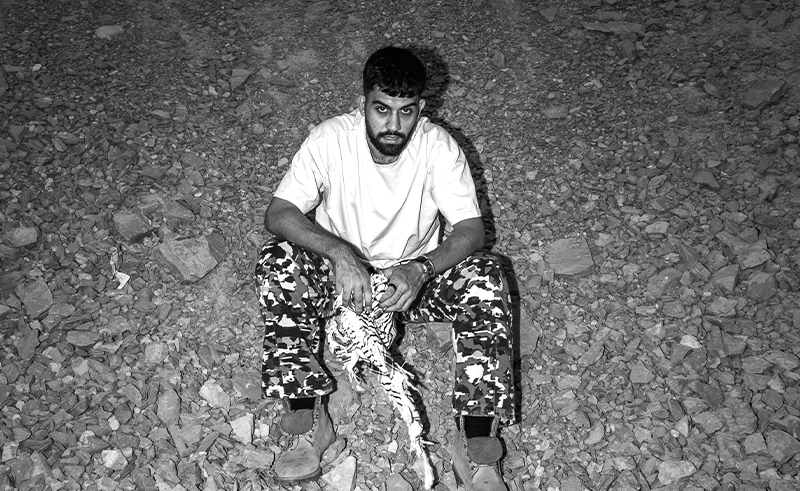
‘Sa7’ delves deeper into this personal struggle, questioning the meaning of doing things “right” when everything around is falling apart. It’s a track that doesn’t offer easy answers but insists on perseverance, expressing a need to push forward despite the overwhelming odds. Here, Shamaly’s flow is a quiet defiance, a refusal to let Gaza’s unchanging reality extinguish the spirit of resistance.
In a surprising shift in the EP, we hear a deeply personal love story in ‘Bastana Feek’. Here, Shamaly steps away from the broader political landscape and offers something achingly intimate. Set against the surreal backdrop of stargazing in a refugee camp, the track captures the fleeting romance of two people trying to carve out something human amid chaos. The beat’s drum n bass foundation places emphasis on the chaotic surroundings, juxtaposed with Shamaly’s precise delivery and contemplative lyrical themes.
The tenderness in his voice, the doubt in his lyrics, and the weight of an uncertain future all coalesce into a haunting portrayal of love on borrowed time, even in the midst of war, human connections can flicker into existence, though often as briefly as they disappear.



